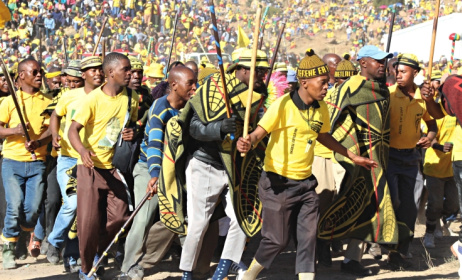Governments are biggest censors – Freemuse report
Freemuse has launched a new global report, which analyses 673 cases of violation of artistic freedom from different cultural spheres in 80 countries throughout 2018.
 Egyptian singer Sherine Abdel-Wahab was a victim of Egypt's harsh obscenity laws last year.
Egyptian singer Sherine Abdel-Wahab was a victim of Egypt's harsh obscenity laws last year.
Freemuse has released a global report for 2018 that analyses 673 cases of artistic freedom violations in 80 countries.
The report – titled State of Artistic Freedom: Whose Narratives Count? – says freedom of creative and artistic expression, as a fundamental human right, is overlooked on a global scale. It singles out 22 countries, with Uganda, Tanzania and Egypt listed as Africa's "countries of concern". The report also puts the spotlight on countries known for making extensive provisions for artistic freedom, namely the US and Germany, where immigrant, LGBTI and general minority rights are called into question.
The report says music, film and visual arts were the top targeted art forms. It highlights the critical challenges artists face and mentions the various methods used to curb freedom of expression around the globe. It also analyses the legal, political and social developments in the focus countries.
It says "different actors often misused national legislation by wrongfully limiting freedom of expression or suppressing it in the name of the defence of other human rights." Intolerance and violence against creatives were the highest in Egypt, where the government silenced 76% of artists and artworks. “Over the past year, at least a dozen artists have faced prosecution for no crime other than exercising their freedom of artistic and political expression. This is one part of a growing tendency of the Egyptian state to silence human rights defenders and civil society," the report says.
Late last year, Freemuse reported that women accounted for 89% of all artistic violations in Egypt. The latest report also mentions Malawi, Somalia, Sudan, Tunisia, Ghana, Liberia and Zambia as African countries where violations of artistic freedom were reported.
The report says governments committed 67% of all censorship, which places them at the centre of artistic violations globally. Other violators include religious authorities, fundamentalist groups and social media and streaming platforms such as Twitter, Facebook and YouTube.
“Artists were subjected to physical attacks, prosecution, imprisonment, fines, restricted mobility and censorship either because of the content of their artwork or statements made during public appearances or on social media,” the report says.
The report dedicates two pages to Uganda, where it talks about Bobi Wine and new regulations that seek to give the government the power to vet song lyrics or film scripts, among other rights infringements.
Download the full report below or read it via the Freemuse official website.


































Comments
Log in or register to post comments